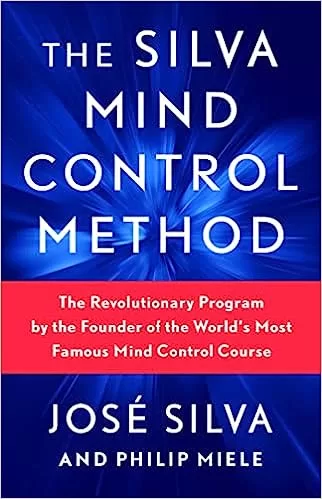Introduction to the Coué Method
The Coué Method, conceived in the early 20th century by French pharmacist Émile Coué, has garnered considerable attention as a distinctive approach to self-improvement and positive thinking. Originating from Coué’s observations of the remarkable effects of autosuggestion on patients, the method emerged as a response to the emerging fields of psychology and self-help practices. Coué believed that the mind greatly influenced the physical state, leading him to advocate for the power of positive affirmations to facilitate healing and personal growth.
A Path To Self-Improvement
Quick Insights
- The Coué Method: Developed by Émile Coué, this method emphasizes self-improvement through positive affirmations and autosuggestion, highlighting the mind’s influence on physical and emotional well-being.
- The Philosophy Behind the Coué Method: Centered on autosuggestion and the subconscious mind, the method advocates repeated positive affirmations to reshape perceptions, influence behavior, and promote self-belief.
- How the Coué Method Works: This approach relies on regular repetition of affirmations to influence the subconscious, cultivate optimism, and stimulate behavioral change through belief and mental reinforcement.
- Techniques of the Coué Method: Key techniques include daily affirmations, visualization, and mental repetition, which help embed positive thoughts, foster motivation, and support personal goals.
- Benefits of the Coué Method: Practitioners often experience improved mental health, increased emotional resilience, and greater life satisfaction by fostering positive thinking and self-belief.
At its core, the Coué Method emphasizes that individuals can harness their subconscious mind through the repetition of positive phrases, thereby fostering a constructive mindset that supports various aspects of life, such as health, relationships, and overall well-being. Coué famously articulated the principle that “every day, in every way, I am getting better and better,” a refrain that encapsulates the essence of his philosophy. This affirmation encourages individuals to accept and internalize the belief in their continuous improvement, which in turn can lead to enhanced self-esteem and emotional resilience.
The significance of the Coué Method lies in its accessibility; it posits that profound transformations in one’s life do not necessitate elaborate techniques or rituals. Instead, Coué’s approach is rooted in the idea that consistent, positive reinforcement can directly influence one’s thoughts, emotions, and behaviors. As a therapeutic technique, it has been utilized in various settings, from health care to personal development workshops. In this context, Coué’s teachings resonate not only with those seeking to improve their physical health but also with individuals pursuing emotional and psychological well-being. With an understanding of its origins and fundamental principles, the Coué Method serves as a valuable framework for those interested in enhancing their lives through positivity and self-suggestion.
The Silva Mind Control Method by José Silva
Ever wondered what it feels like to have your mind work like a finely tuned machine? Enter The Silva Mind Control Method, your guide to harnessing the power of your thoughts! This practical read promises to transform your mental capabilities like never before.
The Philosophy Behind the Coué Method
The Coué Method, conceived by French psychologist Emile Coué in the early 20th century, is grounded in the principles of autosuggestion and the compelling influence of the subconscious mind. At its core, this approach advocates for the vital role that positive affirmations play in personal transformation. Coué posited that by utilizing the power of suggestion, individuals could significantly influence their thoughts, emotions, and overall well-being.
Central to the philosophy of the Coué Method is the concept of the subconscious mind, which is believed to govern a substantial portion of human behavior. The subconscious acts as a repository for personal beliefs and experiences, often shaping one’s perceptions and actions without conscious awareness. The Coué Method proposes that by consciously engaging with this subconscious layer through carefully crafted positive affirmations, individuals can initiate significant behavioral changes and cultivate a healthier mindset.
Positive affirmations serve as a tool to reprogram the subconscious mind. When someone repeatedly states affirmations such as “Every day, in every way, I am becoming better and better,” they are harnessing the power of autosuggestion. This repetition creates a profound impact, as these affirmations begin to seep into the subconscious, gradually altering negative thought patterns and fostering a more optimistic outlook on life. The technique emphasizes that the mind is a powerful ally in the journey to self-improvement; thus, a deliberate focus on positive thoughts can lead to transformative changes.
Moreover, the Coué Method underscores the importance of belief in the process. For auto-suggestion to be effective, individuals must approach their affirmations with conviction and genuine intent. This belief amplifies the affirmations’ potential, reinforcing a cycle of positive change and self-improvement. By embedding these principles into their daily lives, individuals can begin to witness the transformative power that lies within their minds through the Coué Method.
Step into the world of learning and personal growth with the Centre of Excellence!
How the Coué Method Works
The Coué Method is fundamentally based on the principle of autosuggestion, which posits that an individual can influence their subconscious mind through positive affirmations. This method was developed by Émile Coué, a French pharmacist, who observed that verbal suggestions could lead to improvements in a person’s mental and physical health. By repeating affirmations regularly, individuals can cultivate a more optimistic mindset that encourages self-belief and motivation. The premise is simple: the more one verbalizes positive statements, the more likely they are to manifest in reality.
At the core of the Coué Method lies the importance of belief. Effective auto-suggestion hinges on not just the repetition of words, but the genuine belief in their truth. When individuals repeat affirmations such as “Every day, in every way, I am getting better and better,” they need to internalize the message. This internalization can foster a sense of confidence and positivity that permeates various aspects of life. The brain, in response to consistent affirmations, begins to reshape perceptions and behaviors, steering the individual towards their goals.
Repetition plays a pivotal role in the effectiveness of the Coué Method. Engaging in daily affirmations acts as a form of mental conditioning, gradually replacing negative thought patterns with constructive and affirmative beliefs. This ongoing practice encourages the brain to accept these affirmations as truths, hence stimulating behavioral shifts. Consequently, individuals may experience profound changes in their life perspectives, resulting in enhanced resilience against challenges and a greater capacity for personal growth. The mechanisms of the Coué Method demonstrate that with determination and consistent effort, positive change is indeed attainable.
Step into the world of learning and personal growth with the Centre of Excellence!
Techniques of the Coué Method
The Coué Method, developed by Émile Coué in the early 20th century, emphasizes the importance of the subconscious mind in influencing behavior and health. At its core, it employs a range of techniques that facilitate self-improvement through positive thinking and mental exercises. Here, we explore several key techniques that individuals can incorporate into their daily routines.
One of the most fundamental practices of the Coué Method is the use of daily affirmations. This technique involves repeating positive statements that align with one’s personal goals or desired outcomes. For example, a person might say, “Every day, in every way, I am getting better and better.” By consistently reciting these phrases, individuals can reinforce positive beliefs, helping to reshape their subconscious perceptions and foster a more optimistic outlook on life.
Visualization techniques also play a vital role in the Coué Method. This practice allows individuals to create a mental image of their desired state or goal. By vividly imagining themselves achieving specific outcomes, such as improved health or increased confidence, practitioners can activate their subconscious mind to align actions with these positive visions. Regular visualization can enhance motivation and clarity, paving the way for achieving personal aspirations.
Mental repetition serves as another potent tool within the Coué Method. This technique encourages individuals to regularly revisit and reinforce their affirmations and visualizations, embedding these positive thoughts deeper into their subconscious mind. The practice of mental repetition can be particularly effective when combined with periods of relaxation and focused intention, enhancing the overall impact on self-improvement.
Incorporating these techniques into daily life can profoundly influence one’s mindset and promote the desired changes. The Coué Method empowers individuals to harness the power of their thoughts, making the journey towards self-improvement both attainable and sustainable.
Benefits of the Coué Method
The Coué Method, founded by French pharmacist Émile Coué, has gained recognition for its transformative effects on mental health and overall well-being. One of the primary benefits practitioners report is a significant improvement in their mental health. By engaging in positive affirmations and visualization techniques, individuals can rewire their thought patterns, reducing negative self-talk and fostering a healthier mindset. The regular practice of these techniques serves as a powerful tool for confronting and overcoming personal challenges, leading to enhanced emotional stability.
Another notable benefit is the increase in emotional resilience. The Coué Method encourages individuals to construct a robust inner dialogue, which helps them navigate stressors and setbacks with greater ease. This resilience allows practitioners to approach life’s obstacles with a newfound confidence, often resulting in more constructive responses to adverse situations. Anecdotal evidence suggests that individuals who consistently apply the Coué Method experience a marked decrease in anxiety and an increased ability to cope with everyday pressures.
Furthermore, individuals often report an overall enhancement in life satisfaction as a result of integrating this method into their daily routines. By fostering a positive mindset and encouraging self-belief, practitioners tend to align more closely with their personal goals and values. This alignment promotes a sense of purpose and fulfillment that transcends mere self-improvement. Case studies showcase individuals who have utilized the Coué Method to overcome substantial life challenges, ranging from career obstacles to personal relationships, resulting in profound, positive changes in their perception of life.
Ringconn Rings
The RingConn Rings are the perfect blend of modern technology and elegant design. With advanced features for health tracking, communication, and smart home control, the RingConn Rings allow you to stay connected and informed while embracing a sophisticated aesthetic.
In essence, the Coué Method not only supports individuals in cultivating improved mental health and emotional resilience but also facilitates a deeper sense of life satisfaction. Its emphasis on positive affirmations serves as a cornerstone for those seeking to enhance their overall quality of life.
Critiques and Limitations of the Coué Method
While the Coué Method has garnered a significant following and has been credited with aiding many individuals in their self-improvement journeys, it is not without its critiques and limitations. One primary reservation concerning the method is skepticism regarding its actual efficacy. Some critics argue that self-suggestion and positive affirmations, the core principles of the Coué Method, may not yield tangible results for every individual. This skepticism often stems from a scientific perspective, where empirical evidence supporting the effectiveness of such psychological techniques is considered insufficient.
Furthermore, there is a concern that an over-reliance on positive thinking may lead individuals to dismiss or ignore genuine emotional struggles and real-life challenges. Critics suggest that while positive affirmation can foster a hopeful mindset, it might inadvertently encourage a neglect of necessary actions and coping strategies that are essential for holistic well-being. This tendency to overlook deeper issues can result in a superficial engagement with one’s psychological state, which may counteract the intended benefits of the Coué Method.
Another limitation arises from the variability in individual responses to the method. Not everyone may resonate with the principles of positive suggestion, and the efficacy of the Coué Method may be contingent on personal disposition, motivation, and situational context. In certain circumstances, particularly those involving severe psychological distress, the method may prove inadequate or even counterproductive. Individuals facing more complex mental health challenges might require tailored therapeutic interventions rather than the generalized approach offered by the Coué Method.
In summary, while the Coué Method presents a valuable framework for self-improvement, it is essential to recognize its critiques and limitations to implement it effectively and responsibly in personal development endeavors.
Success Stories: Real-Life Applications
The Coué Method, a technique rooted in suggestion and positive affirmations, has been effectively employed by many individuals seeking personal transformation. One notable example is that of Anna, a young professional struggling with anxiety and self-doubt in her career. After learning about the Coué Method, Anna committed to a daily practice of affirmations, particularly the phrase, “Every day, in every way, I am getting better and better.” Over time, she noticed a significant reduction in her anxiety levels, which in turn enhanced her performance at work and allowed her to pursue promotions confidently.
Similarly, David, a retired veteran dealing with post-traumatic stress disorder (PTSD), found solace and healing through this method. Engaging with guided sessions on visualization and positive self-suggestions, he was able to reshape his internal dialogue. By continuously affirming his ability to overcome challenges and embrace a fulfilling life, David gradually reclaimed his mental well-being, showcasing a powerful application of the Coué Method in addressing mental health issues.
In another inspiring case, Lisa, a single mother balancing work and family responsibilities, experienced significant changes in her quality through the Coué Method. Faced with constant stress and financial worries, she adopted affirmations focusing on abundance and self-empowerment. As she persisted with these daily suggestions, Lisa discovered new opportunities for her career growth, leading to a promotion and improved financial stability. Her story serves as a testament to how the Coué Method can revolutionize both personal and professional lives when applied consistently.
These narratives illustrate the broader applicability of the Coué Method across various life challenges. Whether overcoming anxiety, enhancing self-esteem, or seeking professional growth, individuals have successfully utilized this approach, highlighting its potential as a transformative self-improvement tool.
Step into the world of learning and personal growth with the Centre of Excellence!
How to Incorporate the Coué Method into Daily Life
The Coué Method, developed by French psychologist Émile Coué, emphasizes the power of positive suggestion and self-affirmation as tools for self-improvement. Integrating this technique into daily life can lead to significant enhancements in one’s mental well-being and overall productivity. To begin, individuals can adopt a simple yet effective routine that incorporates self-affirmations at specific times during the day.
One of the most practical methods to utilize the Coué Method is through the practice of daily affirmations. Each morning, take a moment to stand in front of a mirror, look yourself in the eye, and repeat a positive statement about yourself. Sentences such as “I am capable of achieving my goals” or “Every day, I am improving myself” can set a positive tone for the day. The key is to repeat these affirmations with conviction and belief, allowing them to resonate within your subconscious.
Another effective strategy is to keep a gratitude journal. At the end of each day, write down three things you are grateful for and reinforce your commitment to positivity. This practice not only aligns with the principles of the Coué Method but also fosters a mindset of appreciation, making it easier to concentrate on the positives rather than the negatives.
Incorporating visualization techniques can further enhance the effectiveness of the Coué Method. Spend a few minutes each day visualizing yourself achieving your goals or overcoming challenges. This mental imagery can create a powerful connection between the mind and body, reinforcing the belief that personal success is attainable.
Finally, consistency is critical. Dedicate a few minutes each day to practice affirmations, gratitude journaling, and visualization. Creating a structured routine will not only solidify these practices but also promote a sustainable pathway to self-improvement. Over time, with a persistent application of the Coué Method, individuals will likely experience transformative changes in their beliefs, attitudes, and outcomes.
Conclusion: Embracing the Coué Method
In summary, the Coué Method stands as a testament to the profound impact that positive thinking and self-suggestion can have on personal development. By fostering a mindset centered around constructive affirmations, individuals may harness the power of their subconscious to influence behavior and emotions positively. At its core, this method emphasizes the significance of belief in oneself as a catalyst for change and improvement.
Throughout this discussion, we have explored the foundational principles of the Coué Method, including its origins and the psychological underpinnings that support its efficacy. The practice encourages individuals to replace negative thoughts with empowering affirmations, reinforcing the idea that our beliefs shape our reality. Such a shift in mindset can lead not only to enhanced self-esteem but also to improved performance and overall well-being.
Moreover, the simplicity of the Coué Method makes it accessible to a wide audience. It can be easily integrated into daily routines, requiring no special training or resources, which empowers individuals to take charge of their self-improvement journey. By routinely practicing positive affirmations, one can gradually cultivate an optimistic outlook that transcends various aspects of life, from personal relationships to professional endeavors.
As we move forward, it is essential to consider the potential benefits that adopting the Coué Method can bring. Embracing this practice can serve as a powerful tool for fostering resilience, enhancing motivation, and ultimately achieving one’s goals. Therefore, we invite readers to reflect on their current mindset and contemplate how the principles of the Coué Method could be utilized to initiate positive change and self-improvement in their lives.
Frequently Asked Questions
Are there any limitations or critiques of the Coué Method?
Yes, some critics question its efficacy, noting that it may not work for everyone, especially those with severe mental health issues, and caution against relying solely on positive thinking without addressing underlying problems.
What are the benefits of practicing the Coué Method?
Practitioners often experience improved mental health, increased emotional resilience, greater life satisfaction, and enhanced self-esteem by fostering positive thinking and self-belief.
What techniques are commonly used in the Coué Method?
Key techniques include daily affirmations, visualization, and mental repetition, all of which help embed positive thoughts, build motivation, and support personal growth.
How does the Coué Method work to impact behavior and mindset?
The Coué Method works by encouraging the regular repetition of positive affirmations, which helps reprogram the subconscious mind, foster optimism, and trigger behavioral change through belief and mental reinforcement.
What is the core principle of the Coué Method?
The core principle of the Coué Method is the use of positive affirmations and autosuggestion to influence the subconscious mind, thereby promoting self-improvement and emotional well-being.
Body, Mind, And Soul For A Fulfilled Life!






